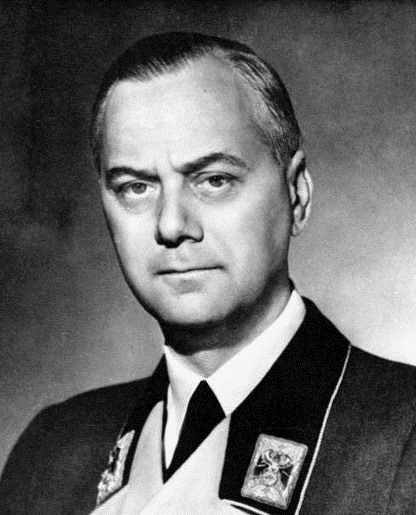|
Greater German People's Community
The Greater German People’s Community (German language, German: ''Großdeutsche Volksgemeinschaft'', GVG) was one of the two main front organizations established after the National Socialist German Workers' Party (Nazi Party) was banned by the government of the Weimar Republic in the wake of the failed Beer Hall Putsch of November 1923. History The GVG was founded on 1 January 1924 by Alfred Rosenberg, the editor-in-chief of the ''Volkische Beobachter'', on the instructions of Adolf Hitler who was incarcerated in Landsberg prison at the time. Shortly before his arrest on 11 November 1923, Hitler had charged Rosenberg with leadership of the movement. Headquartered in Munich, the GVG was largely limited to Bavaria, the birthplace of National Socialism, and had no substantial presence outside that State. The GVG became a haven for Nazi Party members from that area. Prominent members included Max Amann, Phillip Bouhler, Hermann Esser, Franz Xaver Schwarz and Julius Streicher. R ... [...More Info...] [...Related Items...] OR: [Wikipedia] [Google] [Baidu] |
Alfred Rosenberg
Alfred Ernst Rosenberg ( – 16 October 1946) was a Baltic German Nazi theorist and ideologue. Rosenberg was first introduced to Adolf Hitler by Dietrich Eckart and he held several important posts in the Nazi government. He was the head of the NSDAP Office of Foreign Affairs during the entire rule of Nazi Germany (1933–1945), and led Amt Rosenberg ("Rosenberg's bureau"), an official Nazi body for cultural policy and surveillance, between 1934 and 1945. During World War II, Rosenberg was the head of the Reich Ministry for the Occupied Eastern Territories (1941–1945). After the war, he was convicted of crimes against peace; planning, initiating and waging wars of aggression; war crimes; and crimes against humanity at the Nuremberg trials in 1946. He was sentenced to death and executed on 16 October 1946. The author of a seminal work of Nazi ideology, ''The Myth of the Twentieth Century'' (1930), Rosenberg is considered one of the main authors of key Nazi ideological cr ... [...More Info...] [...Related Items...] OR: [Wikipedia] [Google] [Baidu] |
Hermann Esser
Hermann Esser (29 July 1900 – 7 February 1981) was an early member of the Nazi Party (NSDAP). A journalist, Esser was the editor of the Nazi paper, ''Völkischer Beobachter'', a Propaganda Leader, and a Vice President of the Reichstag. In the early days of the party, he was a ''de facto'' deputy of Adolf Hitler. As one of Hitler's earliest followers and friends, he held influential positions in the party during the Weimar Republic, but increasingly lost influence during the Nazi era. Early life Esser was born in Röhrmoos, Kingdom of Bavaria. The son of a civil servant, he was educated in the high school at Kempten. As a teenager, he volunteered for service in World War I and fought on the front lines in the Royal Bavarian 19th Foot Artillery Regiment. After demobilization, he joined the Swabian ''Freikorps'', and in May 1919 took part in the suppression of the Munich Soviet Republic. Esser early on became a socialist, after he joined a left-wing provincial newspaper to train ... [...More Info...] [...Related Items...] OR: [Wikipedia] [Google] [Baidu] |
Far-right Political Parties In Germany
Far-right politics, also referred to as the extreme right or right-wing extremism, are political beliefs and actions further to the right of the left–right political spectrum than the standard political right, particularly in terms of being radically conservative, ultra-nationalist, and authoritarian, as well as having nativist ideologies and tendencies. Historically, "far-right politics" has been used to describe the experiences of Fascism, Nazism, and Falangism. Contemporary definitions now include neo-fascism, neo-Nazism, the Third Position, the alt-right, racial supremacism, National Bolshevism (culturally only) and other ideologies or organizations that feature aspects of authoritarian, ultra-nationalist, chauvinist, xenophobic, theocratic, racist, homophobic, transphobic, and/or reactionary views. Far-right politics have led to oppression, political violence, forced assimilation, ethnic cleansing, and genocide against groups of people based on their supposed inferio ... [...More Info...] [...Related Items...] OR: [Wikipedia] [Google] [Baidu] |


